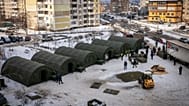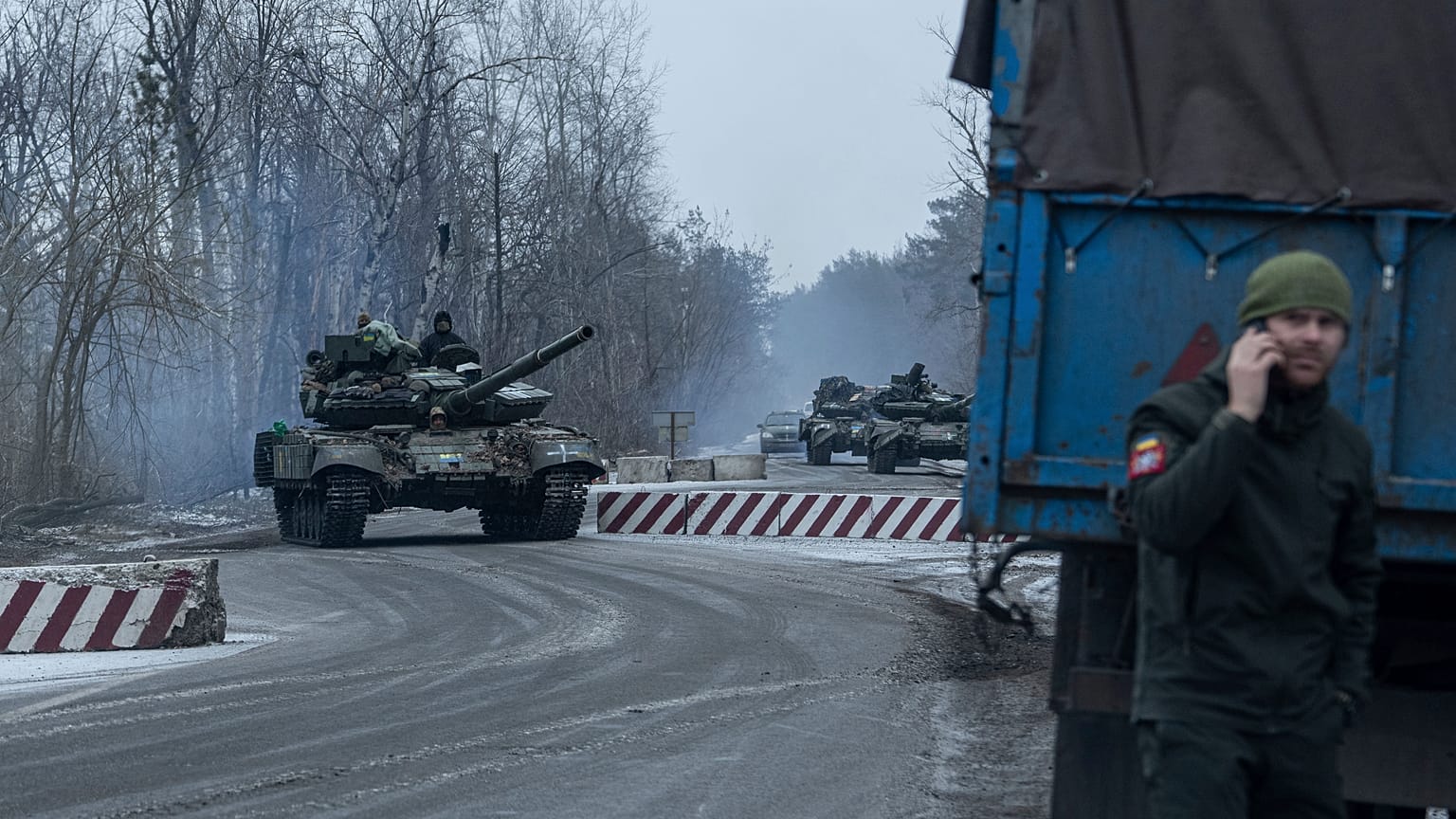Here are the topics the EU most talked about this week: tanks to Kyiv, protests in Brazil and European Parliament President Roberta Metsola's corruption reforms.
In the Ukraine war, it is beginning to dawn on Western countries that they will have to do more to help the country liberate its territory from Russian occupation.
But how? While Germany and the US have recently agreed to send infantry fighting vehicles to Ukraine, the government in Kyiv wants battle tanks.
And here's where the allies differ with nobody seeming ready to do it alone.
Poland and Britain are planning to send heavy tanks to Ukraine, but want to “work with partners”.
"We want this to be an international coalition and we have taken the decision to contribute a package to this international coalition," Andrzej Duda, Polish President said on Wednesday. "The first package of tanks, of a company of Leopard tanks, that I hope together with other Leopard and other tank companies, will be contributed by other countries."
Leopard tanks are built in Germany, so London and Warsaw's move raises pressure on Berlin and other governments to join this initiative.
Yet, Berlin is still hesitating, fearing a major escalation of the war that could potentially drag NATO into the conflict.
Brazil's 'Jan 6th' moment
The West was more on the same page when it comes to another international event: in condemning the riots in Brazil where a right-wing mob refused to accept the loss of Jair Bolsonaro in the presidential election more than two months ago.
“No matter where in the world democracies are attacked, this is always an attack on our freedom and on our values," Annalena Baerbock, German foreign minister said.
"Therefore, all our solidarity goes to the Brazilian people and the democratic institutions in Brazil, who have elected a new government in free and fair elections.”
Europe is no stranger to violent protests or heavy-handed populist rhetoric.
But is election denialism slowly creeping into our political arena as well and should we be worried?
Panos Panayotu, political scientist and head of the Populism Research Group at Loughborough University in England says it is possible.
"We should consider the growing links between certain radical right or far-right parties and politicians. So, what we are witnessing lately is the emergence of a peculiar form of Western international nativism, or put differently, the emergence of a nationalist International," Panayotu told Euronews.
"So, it might sound paradoxical to some people because we tend to think of nationalists as actors that turn inwards, but we see an attempt lately to develop closer ties among one another and don't forget, they established in 2015 their own political group in the European Parliament. They also organise certain meetings across Europe where they gather far-right figures from Hungary, from Austria, from Poland."
"This attempt to strengthen the links between radical right parties is not restricted to Europe. It expands to the other side of the Atlantic. So, in that regard...I think that this could happen in Europe with figures like Orban, for example," he added.
Metsola proposes new MEP ethics rules
The European Parliament will review undeclared trips from lawmakers and pieces of legislation that might have been unduly influenced as a result of the alleged cash-for-favours scheme that has unleashed a political storm across Brussels and beyond, President Roberta Metsola told Euronews.
"We're looking into everything," Metsola said on Thursday afternoon.
"We're looking into trips that have been approved, we're looking into trips that were not declared. We're looking at the process of putting forward amendments, timelines, the way resolutions are negotiated."
The investigation launched by Belgian authorities has shone a light on past legislative work, including a committee vote in early December that approved visa liberalisation for Qatar and Kuwait, as well as an array of paid-for visits of multiple European lawmakers to the Gulf region.
Alarms bells on possible "spheres of influence," Metsola noted, "should start to ring earlier."
The parliament chief presented on Thursday a first draft package of reforms, seen by Euronews, featuring a total of 14 proposals, such as a cooling-off period for former MEPs during which they won't be able to gain employment as a lobbyist, a ban on unofficial friendship groups, the mandatory publication of all scheduled meetings, new rules of access to parliamentary premises, and more detailed declarations on conflicts of interests and personal finances.














